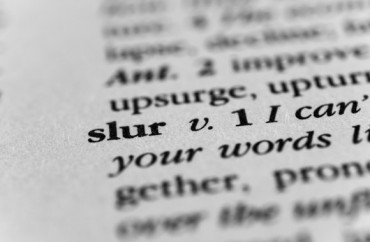
The Michigan State University College of Law Student Bar Association recently offered its “unwavering support” to the Black Law Students Association regarding an alleged racist incident last month.
According to The State News, the SBA passed a resolution stating it is “committed to fostering academic and social interaction among students” and supports “unity, respect, and positive change” after the BLSA posted about a white student using a racial slur in class.
Although the student paper report doesn’t specify what the slur was, the BLSA’s Instagram account notes the student had used the n-word.
“As part of our curriculum, Black law students often read ‘good law’ that seeks to dehumanize our existence,” the BLSA statement reads. “In these cases, law schools expect us to remain objective and professional. However, on January 11, when a law student used the n-word in a classroom of over 80 of his peers, we must speak out.”
The statement goes on to lament the lack of a “safe and welcoming environment” and complain that MSU’s lack of acknowledgment of the slur “dismisses” black students.
The Instagram post lists resources for students who may have “a similar story,” including the number for the MSU Police Dept. and MSU Safe Space.
MORE: U. working on ‘prevention plan’ after professor says n-word in academic context
“Black students, like every student at Michigan State University College of Law, should be able to learn in a welcoming and safe environment,” the statement reads.
The statement says that instead of addressing the slur, Black students were dismissed and were expected to stay engaged in the class without the acknowledgement of the slur or its historical impact to Black Americans.
“The Black Law Students Association does not condone this behavior and expects more from our administration and peers,” the statement reads. “As a community, we should be held to a higher standard to speak out against the use of discriminatory language and racism in the classroom.”
Michael Sant’Ambrogio, interim dean of the College of Law, issued a statement in response to BLSA’s statement.
“The College of Law was deeply saddened by the incident on January 11 and the hurt it caused,” Sant’Ambrogio said in the statement.
Neither the State News, the SBA nor the BLSA note any context of the slur. Did the student say the word as an outright insult? Was he singing music lyrics during down time? Was he using the word in an educational context?
The College Fix asked BLSA President Lindsay Bonney just this via email, but did not receive a response.
There have many instances on various campuses of student groups expressing outrage at use of the n-word (and other epithets) in a purely educational context. Members of the Princeton student paper wanted a professor terminated for using the term in late 2022, for example.
In April of 2021, a Georgetown U. professor’s use of the word while reading from a Ku Klux Klan leader’s remarks drew a formal student complaint.
A Stanford law professor was reading a Patrick Henry quote which included the word and thus brought the wrath of that school’s BLSA upon him. He had even warned students ahead of time the word was coming.
In early 2019, an Augsburg University professor was fired for using the term in context.
MORE: White university dean skewered for using N-word in context; blames Trump
IMAGE: Shutterstock.com





Please join the conversation about our stories on Facebook, Twitter, Instagram, Reddit, MeWe, Rumble, Gab, Minds and Gettr.